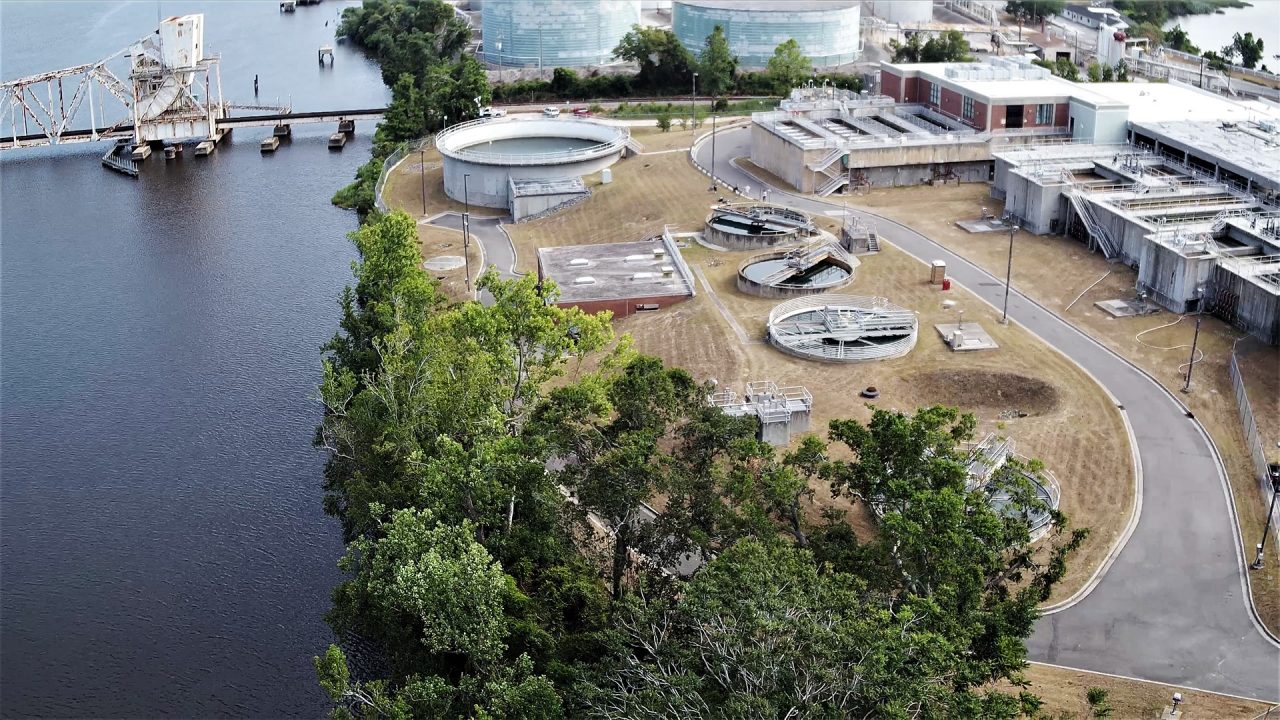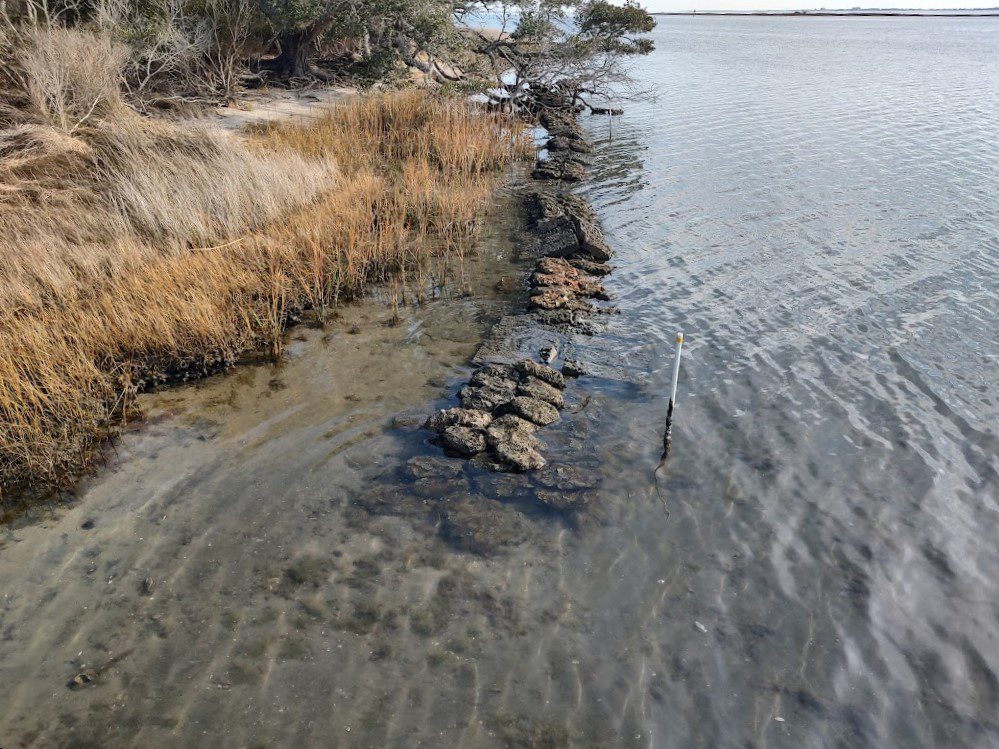
North Carolina’s chief administrative law judge and former head of the state’s environmental regulatory agency has eliminated a state cap on the amount of a chemical solvent some municipal wastewater treatment plants discharge.
Chief Administrative Law Judge and Director of the Office of Administrative Hearings Dr. Donald van der Vaart revoked permit limits of 1,4-dioxane for wastewater treatment plants that discharge the chemical substance, one the federal Environmental Protection Agency classifies as a likely human carcinogen, into the drinking water sources of tens of thousands of people.
Supporter Spotlight
North Carolina Department of Environmental Quality officials did not follow the letter of the law written in state statutes when they calculated discharge limits and established an enforceable water quality standard for 1,4-dioxane, van der Vaart ruled. In his Sept. 12 decision, van der Vaart also said DEQ erred by considering the chemical substance a carcinogen.
“The [Environmental Protection Agency] has characterized 1,4-dioxane as ‘likely to be carcinogenic to humans,’” he wrote. “The EPA has not characterized 1,4-dioxane as ‘carcinogenic to humans.’”
DEQ has 30 days to appeal van der Vaart’s decision.
A North Carolina Department of Justice spokesperson said by email Monday state attorneys are reviewing the decision with DEQ.
In its 2023 draft revised risk determination for 1,4-dioxane as a chemical under the Toxic Substances Control Act, the EPA “proposes that exposure to drinking water sources from surface water that is contaminated by 1,4-dioxane released from industrial facilities contributes to the unreasonable risk” to human health.
Supporter Spotlight

The compound is used primarily as a solvent in chemical manufacturing.
Wastewater treatments plants operated by the cities of Greensboro, Asheboro and Reidsville receive 1,4-dioxane emitted from textile, chemical and plastics manufacturers. Those wastewater treatment facilities then discharge the chemical into surface waters that flow downstream to the Cape Fear region, an area plagued with drinking water contamination from industrial releases of per- and polyfluoroalkyl substances, or PFAS.
PFAS are widely used, human-made chemicals that can be found in a host of consumer products, including stain-resistant carpets, fast food packaging, and water-resistant apparel. Studies of possible human health effects of PFAS, including those found in the Cape Fear River, the drinking water source for tens of thousands of North Carolinians, have found that the chemical substances can cause damage to the liver and immune system, low birth weight, and increase risk of some cancers.
In August 2023, DEQ’s Division of Water Resources issued Asheboro a National Pollutant Discharge Elimination System, or NPDES, permit limiting the city wastewater treatment plant’s release of 1,4-dioxane.
The city sued, challenging the state’s power to include the 1,4-dioxane water quality standard in the permit and arguing it faced excessive financial burden because of the new limits.
The cities of Greensboro and Reidsville joined in the lawsuit after both were issued notices of violation for 1,4-dioxane discharges in November 2019 and required to consent by special order to include discharge limits in their draft NPDES permits.
Brunswick County, Cape Fear Public Utility Authority and Fayetteville Public Works Commission intervened in the case, asserting that upstream 1,4-dioxane dischargers placed an undue financial burden on them to sample drinking water sources for the chemical and try and reduce the level of consumption of it to their customers.
In his ruling, van der Vaart noted that a regulatory impact analysis, which assesses possible financial impacts of proposed rules, states that costs associated with controlling discharges of 1,4-dioxane “… are anticipated to be prohibitively expensive for local governments and the citizens served by public utilities,” but acknowledges “ongoing costs benefits associated with the monitoring and treatment of 1,4-dioxane are likely to be considerable.”
Van der Vaart was appointed DEQ secretary in 2015 by then-Gov. Pat McCrory. In 2017, under the leadership of then-Secretary Michael Regan, van der Vaart was placed on administrative leave. Van der Vaart later resigned from DEQ.
Following growing public outcry in recent years, both the EPA, now headed by Regan, and DEQ have begun to address the releases of some of these compounds – there are more than 10,000 – into drinking water sources.
Earlier this year, EPA announced final maximum contaminant levels limiting a half-dozen PFAS in drinking water.
DEQ’s proposed draft rule outlining health standards for PFOA, PFOS and GenX in groundwater is heading for public comment after a unanimous vote of the state’s Environmental Management Commission.
Groundwater supports about half of drinking water supplies in North Carolina.
The commission decided to omit five PFAS initially included in the proposed draft rule.
The board is still hashing out DEQ’s proposal to establish surface water rules for all eight PFAS. Earlier this month, the commission’s water quality committee instructed DEQ to develop a draft rule and regulatory impact analysis that would establish monitoring requirements for every industrial and NPDES permit and require every industrial and significant industrial user to include PFAS source-reduction plans in their municipal pretreatment plans.
The Republican-majority commission has come under fire for what some state officials and environmental groups are calling stall tactics.
In a meeting earlier this month, some commissioners continued to refute those claims, saying that they were committed to addressing 1,4-dioxane discharges into drinking water sources in the state.
Commission members briefly discussed a petition to the EPA asking the agency to strip North Carolina’s authority to administer the NPDES permit program. North Carolina is one of 47 states authorized by the EPA to implement the permit program.
Cape Fear River Watch, Environmental Justice Community Action Network, Haw River Assembly, and MountainTrue filed the petition Aug. 28, arguing that the North Carolina General Assembly had blocked DEQ from “effectively implementing” its NPDES permit program and protecting North Carolinians from water pollution.
The General Assembly has amended laws that dictate who appoints members of the Environmental Management Commission and Rules Review Commission, “such that these commissions have been effectively captured by a supermajority in the legislature that is hostile to environmentally protective regulation,” according to the petition.
Legislators have also enacted laws that give the Office of Administrative Hearings “final decision-making authority over NPDES permits, thereby stripping DEQ and the EMC of the roles assigned them,” the petition states.
The EPA “generally works” with a state and petitioner to resolve issues raised in a petition, according to the agency’s website.
Kelly Moser, a senior attorney with the Southern Environmental Law Center’s Chapel Hill office, confirmed late last week that the EPA is taking the petition under advisement. The EPA’s Atlanta region press office did not respond to a request for comment.
“We’ve had concerns about the legislature control over the EMC and we’re just seeing that playing out in the latest delays that the EMC has created in North Carolina’s attempts to protect people from harmful industrial chemicals,” she said in a telephone interview. “The people of North Carolina deserve to have access to clean water and the actions by the state legislature, the EMC and now ALJ van der Vaart are standing in the way of North Carolinians having access to clean water. We are confident that EPA will take our petition seriously and that the state will hopefully be forced to come into compliance.”







